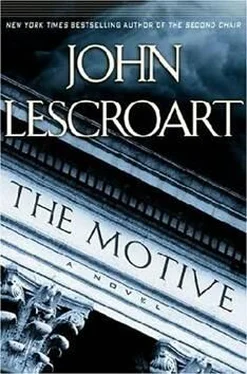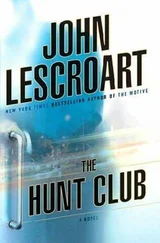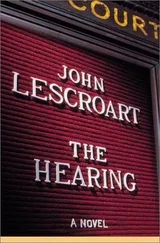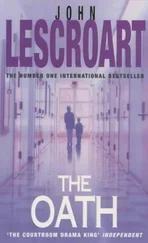"How old was she?" Glitsky asks.
Stuart shrugs. "Thirty, fifty, somewhere in there. Mostly she was hungry."
"And she and Missy became friends?" Glitsky, getting to it.
"I wouldn't say that exactly. Sometimes they'd sit together, that's all. Then one day she comes in, I'm talking Dorris now, and she's all smiling, showing off her teeth all clean and fixed up. You know the clinics don't generally do dental, so somebody asked and she said she had an angel. That was all. That's really all I remember about it. Nothing connected to Missy herself. It was just another little miracle like happens all the time here."
Hardy's is all game face. He's got his own teeth clenched hard in his mouth, his lips set. Glitsky thanks the reverend and they walk outside together.
"She paid Dorris to establish the dental records," Hardy says. "She knew she was going to kill her."
"Maybe not when she made the deal to get Dorris's teeth fixed," Glitsky says. "Maybe just setting it up in case she ever needed to."
Glitsky knew that Davis, California, was the home of one of the campuses of the University of California, but that was about all he knew of it. He'd never before stopped in the more or less upscale college town, which was located about ten miles southwest of Sacramento. The fog had lifted and now a drizzle surrounded the car, steady enough to keep his windshield wipers on intermittent swipe.
Leaving the freeway, deep in thought, he made an inadvertent wrong turn until a sign for a surgery clinic next to a sushi place struck him as so incongruous that it shook him out of his reverie, and he realized he'd come the wrong way and turned around. Heading back toward downtown, he waited in a surprisingly slow and lengthy line of traffic. Ten minutes later, the reason for the delay became clear. Some genius of a small-town city planner had evidently decided it would be a good idea to have the five lanes of the freeway overpass funnel down into a narrow, two-lane tunnel /underpass beneath an old railway line. But Glitsky was a longtime resident of San Francisco to whom traffic delays were an everyday fact of life. If he let traffic bother him, he would have had a nervous breakdown or psychotic episode years ago. There was a light at an intersection up ahead of him, just in front of the tunnel, that had already cycled through red twice. It wouldn't be long, another few minutes at most. He'd just wait it out.
It's one week after the dismissal, five weeks ago to the day, and FBI Special Agent Bill Schuyler sits with Glitsky down -stairs in one of the half-hidden back booths across from the Hall at Lou the Greek's. It's way after hours, going on nine at night, and Glitsky hasn't yet been home. Everything he is doing with the Hanover matter, and all week he's been at it, has been transpiring outside the realm of his daily work.
The two men have had a professional relationship for more than six years. But it's never easy with overlapping jurisdictions, different procedures and priorities. Feds and locals weren't like oil and water. More like oil and oranges. This is about to become clearer than ever. Schuyler says,
"Yeah."
Glitsky, hands around his mug of hot tea, nods. He's not surprised by the admission so much as by the sudden current of anger that courses through him. "You're telling me you knew?"
"I didn't know, personally, myself, but yeah, somebody in the bureau knew."
"And whoever it was didn't think it might be worth mentioning, say to the cops investigating a double murder?"
Schuyler isn't going to fight about it. "Nope. She was dead. We checked ourselves and she was gone. What difference would it make?"
"It might have made a small difference to the woman who spent eight months in jail accused of killing her."
"Not my problem. Neither is this. I inquired into it as a favor to you and got what you wanted. I don't see what's your beef, tell you the truth. She was connected into witness protection, okay. That's what you asked. Then somebody else apparently killed her. So?"
"So maybe the killer was who she was being protected against."
"It was determined that wasn't the case."
Glitsky presses the skin at his temples, runs his finger over the scar through his lips. "It was determined…"
"That's what they told me." Schuyler doesn't move a muscle. His hands are clasped on the table in front of him. He may know Glitsky somewhat as an individual, but this is not a personal conversation on any level. It is bureau business.
"So what was the protection about?"
"That's 'need to know.'" Then, softening somewhat. "So I don't know."
"Any way to find out?"
A shrug.
"And what about now, when it appears she's alive?" "That I did ask. Seems she fooled us, too." "So she's really gone?" "That's what I heard."
"Why would she do that? Shake your protection if it was working?"
Schuyler shakes his head. "No idea."
Glitsky wills himself to speak calmly. "Let me ask you this, Bill. Your personal opinion. Would somebody in the bureau have helped her with this?"
"With what?"
"Getting away."
After a minute, he nods. "It's barely possible, I suppose, but not if it involved killing Hanover and another citizen and then torching the house."
"But you do agree that it must have been her?"
"It's possible. I don't have an opinion. Officially, she's still dead."
"She's not dead. There's no body."
"Okay, you've only known that for a week. Before that, she'd been dead for ten months. In the system, she's still dead."
This isn't Glitsky's war. Besides, dead or missing, the official call doesn't matter to him. "Do you know who her connection was?"
A flare goes off in Schuyler's eyes. He does a favor for Glitsky and the guy wants to go around him, higher up? "Negative," he says. "And they wouldn't tell me if I asked."
"Need to know again?"
"That's how we do it." Schuyler, truly pissed off now, starts to slide out of the booth.
Glitsky reaches out a hand, touches his arm, stops him. "She's alive, Bill. I intend to find her, but I need something to work with. I need to know who she is."
"Put in a request." He gets out of the booth. "If anybody wants to talk, they'll call you."
* * *
Glitsky came to believe that the only realistic possibility of tracing Missy D'Amiens had to be through the very large sum of money she'd stolen. She wouldn't want to carry it around in cash. She would have to put it somewhere, if only for safekeeping. So on the day after his meeting with Schuyler, he had made some inquiries with the local branch of the Department of Homeland Security and had finally been put in contact with the Treasury Department's Financial Crimes Enforcement Network, known as FinCEN. He didn't hold out much hope that the financial search would yield any results, since he'd already learned that Missy's Social Security number was inactive due to her apparent death. But he had nothing else to pursue.
As a law enforcement officer, Glitsky had the authority to initiate what they called a Section 314(a) request, under that numbered provision of the Patriot Act. At the same time, he petitioned the attorney general of the United States, indicating that the person he was investigating in the Witness Protection Program had been charged, according to 18 U.S.C. Section 3521 et seq., with "an offense that is punishable by more than one year in prison or that is a crime of violence."
The 314(a) request, originally intended to monitor the financial dealings of suspected terrorist groups, had in fact become primarily a tool to identify money laundering. There was, Glitsky knew, a host of problems with this approach-privacy issues, First Amendment questions, the basic problem of government interference with the lives of private citizens-but they were not his problems. Not now. And beyond that, the approach seemed somewhat backward. But to his astonishment his research turned up the fact that banks and most other financial institutions-even in post-9/11 America-didn't try very hard to verify the identity of their customers.
Читать дальше












